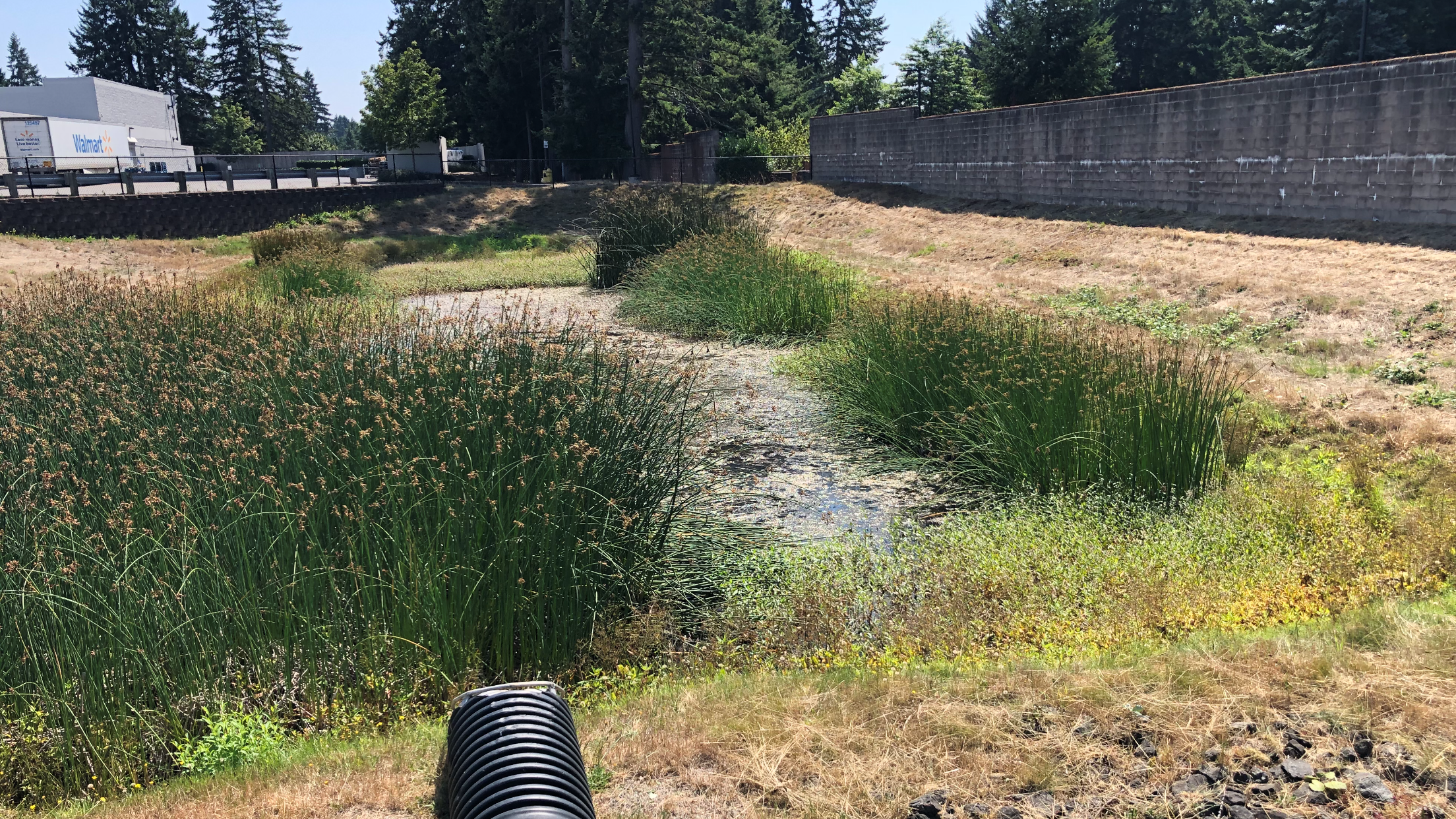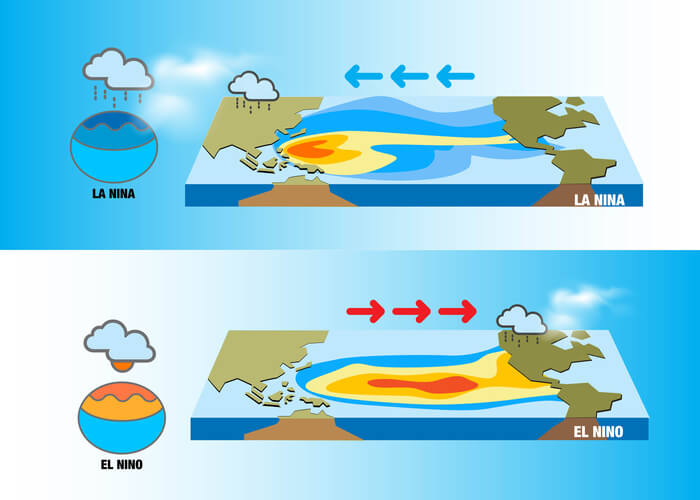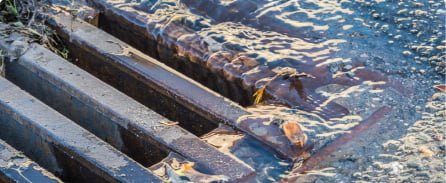Rain Garden
Rain gardens are a smaller version of a bioretention cells that are less complex. They collect and filter stormwater runoff from adjacent buildings, parking lots, and impervious services. Rain gardens are a system of pervious materials like sand, gravel, and soil that work together to filter stormwater as it flows to the groundwater. Meant to be aesthetically pleasing, these gardens mimic natural occurrences of the water cycle and, once established, require low maintenance. Rain gardens mitigate flooding and, puddling and, improve water quality while creating habitats and food for pollinators and other wildlife. Planted with native grasses, bushes and flowering plants, the soil is meant to contain runoff and allow it to fully infiltrate.
Your site would be a good contender for rain garden development if:
- There is the ability to sacrifice a small area for the garden’s construction,
- The soil is permeable to allow infiltration,
- It is a non-wooded site, as water could damage roots of surrounding trees,
- There is a gentle to moderate slope,
- The site receives frequent small rain events,
- It receives full to partial sun,
- It is in need of first flush capture,
- And is looking for water quality improvements.
If you are looking to meet municipal goals to receive stormwater credit, rain gardens can help prevent CSO, allows for groundwater recharge, increases water quality, and adds green space.

IMPORTANCE AND BENEFITS OF RAIN GARDEN MANAGEMENT
The main difference between a rain garden and bio swale is that bio swales are designed to slow runoff, while rain gardens allow stormwater infiltration and are designed to hold the stormwater for long periods of time. Rain gardens are integrated into city infrastructure or residential areas, intended to filter runoff and remove pollutants like sediment, metals, and hydrocarbons. They can also reduce peak runoff rates, increase stormwater infiltration, or groundwater recharge, and manage water volumes during storm events.
Rain gardens provide water protection, water conservation, and stormwater quality benefits. Some of the benefits of a bioretention system management include:
- Efficient and effective pollutant removal through infiltration, plant absorption, and often using engineered media
- Reduction of runoff and stormwater volume control from the developed site
- Can provide groundwater recharge
- Utilization of native forest ecosystem structure and landscape processes to increase water quality and biodiversity
- Creates natural habitats and improves site aesthetics
- Flexibility in design layout and scale, which allows it to fit in most landscapes and development sites
- Good option for retrofit of existing infrastructure
- Relatively low maintenance
- Adds aesthetic appeal to the sites
AQUALIS PROVIDES STORMWATER RAIN GARDEN MANAGEMENT SOLUTIONS
As the green stormwater infrastructure experts, AQUALIS has significant experience in the rehabilitation and long-term maintenance of rain gardens. Our goal is to design and implement rain gardens that effectively filter pollutants out, slow stormwater runoff, reduce erosion, create and restore habitat for native vegetation and wildlife and improve water quality in a natural, aesthetically pleasing manner.
We can assist with the development and implementation of your rain garden management solution. Before we develop a plan for your property, an AQUALIS consultant will perform an initial site assessment to determine your stormwater management needs. Based on the information collected from this visit and our best practices, we will develop a plan that fits your site needs with the highest compliance at the lowest cost.
LET AQUALIS MANAGE YOUR RAIN GARDEN SOLUTIONS
AQUALIS provides the necessary system maintenance for green stormwater infrastructure to operate as designed. Regular rain garden maintenance includes inspecting for and correcting clogging and erosion, removing any trash or debris, and evaluating vegetation health. Our services include erosion mitigation, sediment build-up, structural damage inspections, trash removal, weeding, plant and tree trimming, mulch replacement, soil aeration, and plant replacement when necessary. Using our certified stormwater best management practices inspection, our specialized maintenance professional will manage and submit all the necessary inspections and required annual reports for you.


